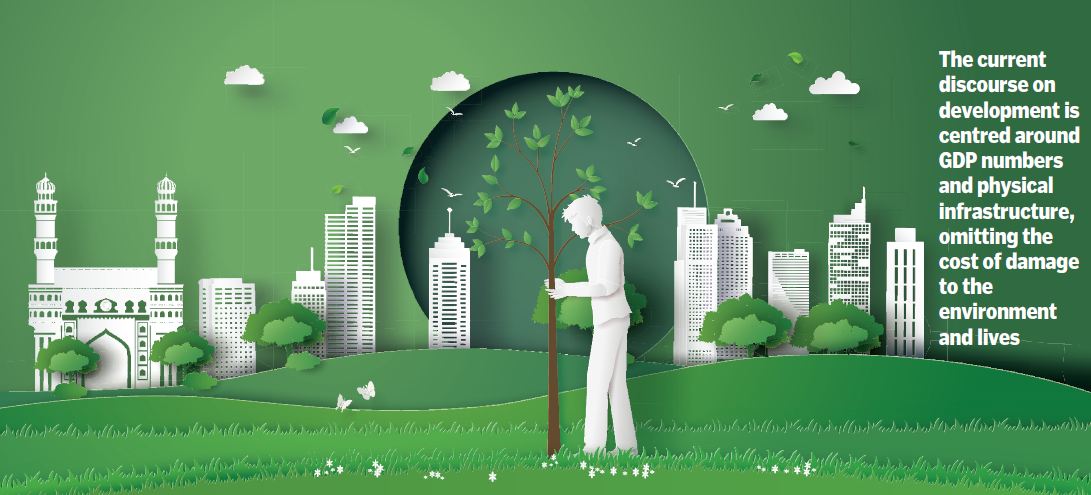Politics is central to human life. Human lives are inextricably linked to the state (political authority) and political parties. In democratic politics, every political party, national or regional, fights to win elections. India’s politics, by and large, revolves around development, welfare and social justice. Democracy in India is in a transitional phase. There is no doubt that political parties in India often use nationalism, regionalism, religionism and casteism to consolidate their vote banks.
As a maturing democracy and given the fact that the majority of citizens are uninformed or poorly informed, it is understandable that political parties use the aforementioned factors to mobilise their constituents. Once the citizens become aware of these political tactics, time will be ripe for the political parties to address the real issues that are concerning the country.
Mainstreaming Issues
Political parties in India ignore the necessity of mainstreaming issues like environmental protection and biodiversity. Barring a few parties, the majority of political organisations consider these issues as unimportant and negligible in securing the votes. Being the largest democratic nation in the world, for India, which is home to about one-fifth of humanity, it is in the long-term interest of our planet in general, and the nation in particular, to recognise the importance of Green politics.
There is widespread apprehension that going green or a shift towards a green economy would result in the decline of employment and would hinder progress. At the beginning of the computer era in the country, there was a similar misconception that automatic machines would axe jobs. But in reality, that is not the case. Jobs have increased manifold and new employment opportunities have been created across all sectors. As we go back further, when machines were introduced in European society, there was a great amount of anxiety that the power-run machines would replace manual labour and make it redundant.
‘Capital’ist Punishment
In India, the rate of degradation of the environment has intensified in the post-liberal era. The switch from the socialist course of development to an unplanned capitalist developmental path has not only cost traditional livelihood of millions of people but has also made the economic system unsustainable.
Moreover, the so-called development has been restricted to the wealth-creating centres, cities, and the benefits of growth are also shared unequally. The strategy of concentrated and centralised development in and around the cities has made the lives of hand-to-mouth sections miserable. Consumerism and destruction are essential to sustain capitalist empire without which the capitalist economic system falls off by itself due to the self-load.
The growing green consciousness among the citizenry, although confined to a few urban pockets, is a positive development. Reasons like congestion, pollution and rapid rise of non-communicable diseases might have forced the urban peers to rethink about the current lifestyle and its subsequent effects on Nature. The Covid pandemic has given us the true opportunity to re-align our lives with Nature. Happiness, health and wealth of a man depend on Nature and its resources.
Limited Environment
At present, the green movement and environmental activism have been limited to pressure groups and other civil society organisations. Pressure groups create indirect pressure on political parties or the party in power to design policies based on a long-term interest of society, but it is the political power that ultimately decides the course of action.
Going by the current political trend, it is unfortunate to say that no civil society organisation or NGO would contest/win elections solely in the name of protecting the environment. So, rather than emphasising on the indirect route, building a new political party focused on environment would be the best bet to transform the current political parties, give them a green touch and build a sustainable economic system.
Making a Shift
Shifting towards a green economy doesn’t mean that the existing system has to be replaced by an entirely new system. Change has to be gradual. The current discourse on development is centred around GDP numbers and physical infrastructure. It omits the cost of damage to the environment and the subsequent effects on the socio-economic-cultural spheres of human life.
When it comes to the political parties, the concern over ecology and environment, rather than addressing the issue on a holistic basis, it has been confined to election manifestoes and on and off sloganeering campaigns. No doubt, lack of technology is a major impediment but more than that it is the political will that matters in order to build a sustainable green society.
India’s green vision, as of now, is limited to banning single-use plastics and increasing green cover. The green element has to be an essential part of our economics if we really aspire to chalk out an alternative development path different from Western and China’s growth models.
In the short-term, the stress upon the green mode of production might hamper economic growth and make exports uncompetitive but in the long term, given the growing tendency of the western consumers toward green products, it would provide India’s manufacturing base an edge over others. Development needs to be qualitative rather than quantitative and it has to reflect in the living standards of people.
India will surpass China, in terms of population, by the end of this decade. To satisfy the needs of a growing population on the one hand and to address the challenge of climate change on the other, India’s policymakers need to come up with a wise plan, which guarantees both economic and environmental securities to the citizens.
(The author is Director, Samudrala VK IAS Academy)
Now you can get handpicked stories from Telangana Today on Telegram everyday. Click the link to subscribe.
Click to follow Telangana Today Facebook page and Twitter .
